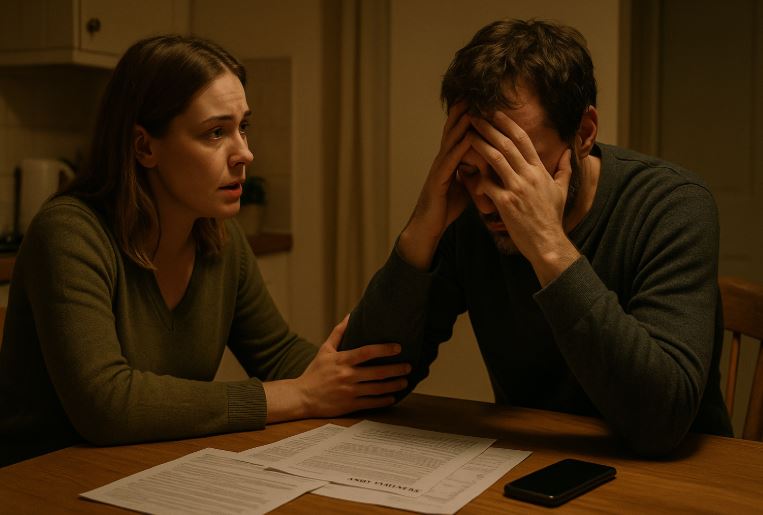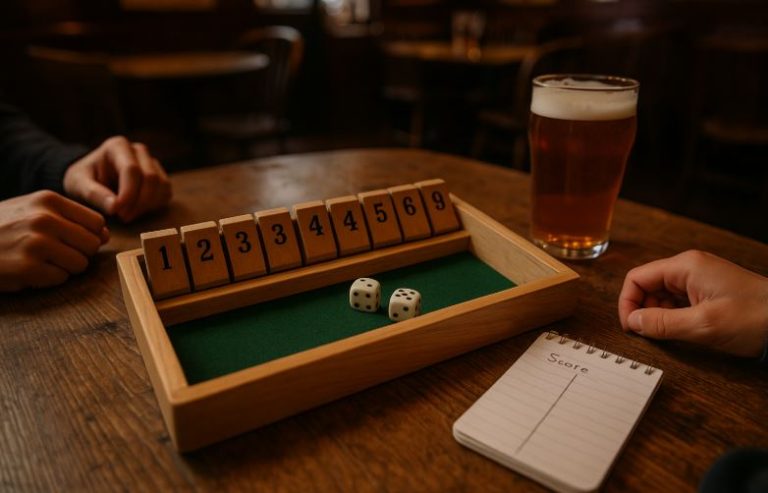How to Help Someone With a Gambling Addiction?
Realising someone close is struggling with gambling can be emotionally overwhelming. You might have noticed a loved one becoming withdrawn, frequently stressed over money, or caught in cycles of secrecy and debt. It’s hard to know what to say or how to act. You want to help but fear saying the wrong thing.
Gambling addiction doesn’t just affect the person placing bets. It ripples through families, friendships, and communities. Across the UK, thousands of individuals and households face the consequences of problem gambling every year.
Yet, despite the challenges, support and recovery are possible, and you can play a pivotal role in that journey.
This guide offers practical, empathetic, and research-backed advice on how to help someone with a gambling addiction.
What Are the Warning Signs of a Gambling Addiction?

Spotting the early signs of gambling addiction can be difficult, especially when the person is actively hiding their habits. Unlike substance misuse, gambling often has no physical symptoms, which can delay intervention. However, behavioural and emotional clues often appear when gambling becomes problematic.
Behavioural and Financial Indicators
Gambling addiction tends to interfere with daily responsibilities and financial stability. You may notice the person:
- Frequently borrowing money or selling belongings with vague explanations
- Missing work, school, or family obligations without clear reasons
- Becoming secretive about their phone, finances, or whereabouts
- Chasing losses by continuing to gamble despite setbacks
- Hiding betting receipts, online transactions, or gambling apps
Emotional and Social Symptoms
As the addiction deepens, emotional and social signs may become apparent:
- Increased irritability, anxiety, or mood swings
- Withdrawal from social interactions or family life
- Defensiveness when gambling is mentioned
- Denial about the extent of their behaviour
- Feelings of guilt or shame followed by continued gambling
Understanding these signs can help you approach the situation more confidently and with greater compassion.
Why Is It Important to Approach the Conversation Carefully?
Initiating a conversation about gambling addiction can be incredibly sensitive. It often triggers shame, denial, or anger. That’s why how you speak to the person is just as important as what you say.
Timing and Tone Matter
Choose a moment when the person is calm and not under the influence of stress or recent gambling losses. Ensure the environment is private and safe.
Avoid using judgemental language or accusations, such as saying “You’re throwing your life away” or “You’ve ruined everything”. This will likely provoke defensiveness rather than openness.
Express Concern, Not Control
Frame the conversation around concern rather than criticism. Use personal language to show empathy:
- “I’ve noticed you’ve been really stressed lately, and I’m worried about you.”
- “I care about you, and I want to help if you’re struggling.”
Listen without interrupting. Let them speak freely, even if their responses are hard to hear. You’re not there to fix everything in one talk but to open the door to ongoing dialogue.
How Can You Support Without Enabling?

It’s natural to want to ease the struggles of someone with a gambling problem, especially if they’re in debt or emotionally distressed. However, doing too much for them, especially financially, can inadvertently enable the addiction.
Understand the Line Between Support and Enabling
Support means offering emotional reassurance, guiding them toward help, and standing by their recovery. Enabling, on the other hand, might include:
- Paying off their gambling debts repeatedly
- Lying to cover for their behaviour
- Ignoring red flags to avoid conflict
These actions may offer short-term relief but often delay the person’s accountability and recovery.
Practical Ways to Support
- Encourage them to set up financial safeguards, such as self-exclusion from betting platforms or limited access to funds.
- Offer to help them find support groups or book therapy sessions.
- Share helpful resources and support helplines.
Focus on empowerment rather than rescuing them. Recovery is a personal journey, your role is to walk beside them, not carry them.
When Should You Encourage Professional Help?
In many cases, the individual will not be able to manage their gambling problem alone. Addiction is a complex mental health condition, and professional intervention often plays a critical role in sustainable recovery.
Recognising the Need for Treatment
Professional help becomes essential when:
- Gambling has caused significant financial loss or debt
- The person expresses suicidal thoughts or severe emotional distress
- They’ve tried and failed to stop gambling multiple times
- Their relationships, jobs, or health are at risk due to gambling
Even if the person is hesitant, planting the idea early can influence them to seek help when they’re ready.
Available Professional Support in the UK
- NHS Gambling Services: Offer confidential, free treatment programmes for individuals and families.
- GambleAware: Connects users to tailored counselling, digital tools, and support groups.
- GamCare: Provides 24/7 helpline services, live chat, and one-to-one therapy.
- The Priory Group: Offers private addiction treatment for those requiring residential support.
Be supportive in helping them explore these services, but avoid pressuring them into immediate action if they’re not ready.
How to Help Someone With a Gambling Addiction?

Breaking the cycle of gambling addiction takes time, patience, and a series of consistent steps. This section outlines a practical roadmap for supporting someone effectively.
Step 1: Educate Yourself
Start by understanding the nature of gambling addiction. Knowing the triggers, brain responses, and emotional consequences allows you to approach the issue more intelligently and with greater empathy.
Step 2: Initiate a Thoughtful Conversation
Choose a private, calm setting. Express your concern through observations and care, not blame. Encourage openness by showing you’re there to listen, not lecture.
Step 3: Establish Boundaries
Make it clear that you will not support gambling behaviour but will support recovery. This includes setting boundaries around money, shared responsibilities, and emotional interactions.
Step 4: Offer Help, Not Ultimatums
Provide information on professional support services, offer to accompany them to a support group, or help them manage access to gambling platforms, but avoid using threats or guilt.
Step 5: Encourage a Support Network
Recovery is more sustainable when supported by the community. Encourage them to engage with peer groups or involve trusted friends or family members.
Step 6: Prepare for Setbacks
Relapse can happen. If it does, avoid shame-based reactions. Focus on reaffirming your support and revisiting previous steps calmly.
What Role Can Boundaries Play in Recovery?
Boundaries are not about punishment. They are essential tools that protect both the person struggling and the people around them. Without clear boundaries, emotions run high, conflicts arise, and enabling behaviours creep in.
Setting Emotional and Practical Boundaries
Boundaries should be fair, consistent, and transparent. Some practical boundaries include:
- Not lending money or covering debts
- Not tolerating lying or manipulation
- Not engaging in arguments about gambling
Emotional boundaries might mean:
- Limiting discussions around gambling triggers
- Refraining from checking their behaviour obsessively
- Prioritising your own emotional health
Communicating Boundaries
Discuss boundaries openly. Use calm, non-confrontational language. For instance:
“I can’t give you money, but I’m here to talk or go to therapy with you.”
Be prepared to reinforce these boundaries consistently. They are not punishments, they are conditions for a healthier relationship and recovery path.
How Can You Look After Your Own Mental Health During This Process?

Supporting someone through addiction can be emotionally exhausting. Feelings of guilt, anxiety, anger, or helplessness are common among family and friends. That’s why taking care of yourself is not optional, it’s vital.
Signs You’re Being Affected
- Constant worry or stress over their behaviour
- Disrupted sleep or eating patterns
- Feeling emotionally drained or resentful
- Social withdrawal or isolation
Strategies for Self-Care
- Speak to a therapist or counsellor about your experiences
- Join support groups like GamAnon for families and friends
- Maintain your regular activities and relationships
- Set emotional limits and recognise when to step back
Prioritising your wellbeing helps you remain a stable source of support without compromising your own health.
Who Else Can You Involve in the Support Process?
You don’t have to carry the burden alone. Involving others can create a wider safety net and encourage accountability for the person affected.
Key People to Consider
- General Practitioners (GPs): Can offer referrals to mental health services and manage related issues like anxiety or depression
- Therapists: Provide specialised cognitive behavioural therapy (CBT) tailored to gambling addiction
- Family Members: If appropriate, close relatives can offer practical and emotional support
- Support Groups: Encourage group therapy or peer-led programmes to reduce isolation
Collaboration strengthens the recovery framework and gives you more options when situations become difficult.
What Are the Risks of Ignoring the Problem?

Ignoring gambling addiction rarely leads to it resolving on its own. Instead, the issue often escalates and causes more harm over time.
Escalation of Consequences
- Financial Harm: Unchecked gambling can lead to overwhelming debt, bankruptcy, or criminal behaviour.
- Mental Health Deterioration: Anxiety, depression, and suicidal ideation are common in long-term addiction.
- Relationship Breakdown: Trust erodes, and family bonds may be permanently damaged.
- Physical Health: Chronic stress and lack of sleep can result in long-term health issues.
Taking early action helps avoid deeper consequences and sets the stage for recovery.
Can Gambling Addiction Be Fully Overcome?
While gambling addiction is a chronic condition, recovery is absolutely possible. With the right tools, support, and mindset, many individuals go on to rebuild their lives and relationships.
Long-Term Recovery and Relapse Prevention
Recovery is often a lifelong journey. Even after months or years of abstinence, the urge to gamble can resurface during stress or emotional vulnerability. That’s why ongoing support is crucial.
Key Ingredients for Success
- Commitment to therapy or support programmes
- Strong, consistent boundaries from loved ones
- Positive lifestyle changes, such as mindfulness or new hobbies
- Regular check-ins and support group attendance
Celebrate progress, not just perfection. Every step forward counts.
Conclusion
Helping someone with a gambling addiction is a powerful act of love, courage, and resilience. While the path may be challenging, your support can truly make a difference in their recovery.
By recognising the signs, initiating honest conversations, setting healthy boundaries, and encouraging professional help, you become a cornerstone in their healing journey.
Remember, you’re not alone in this. Support is available for both of you, and recovery is possible.
FAQs
How can I talk to someone who denies their gambling problem?
Start with calm, non-judgemental observations and express concern, not blame. Denial is a common defence, so focus on how their behaviour affects you and others.
Should I lend money to someone with a gambling addiction?
No, lending money can enable the addiction. Instead, help them access professional support or financial counselling.
Is gambling addiction considered a mental health disorder?
Yes, it is recognised as a behavioural addiction and often coexists with other mental health conditions like anxiety or depression.
Can someone recover from gambling addiction without professional help?
While some manage through peer support, most benefit significantly from professional therapy and structured programmes.
How do I protect my finances when living with a problem gambler?
Separate bank accounts, control of joint finances, and consulting a financial advisor are important first steps.
Are there free gambling support services in the UK?
Yes, organisations like GamCare, NHS Gambling Services, and GambleAware provide free and confidential help.
What if they relapse after getting help?
Relapse can be part of recovery. Offer continued support, encourage them to return to treatment, and avoid shame-based reactions.
Disclaimer
This information is shared for educational purposes only. We do not endorse gambling. Please make informed choices and gamble responsibly if you choose to participate.







